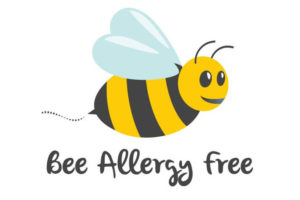Beat the Sneezes: Managing Summer Allergies in Florida
Summer in Florida is synonymous with warm weather, beach outings, and unfortunately, allergies for many residents. The state’s subtropical climate creates an environment where allergens thrive, particularly pollen from grasses, trees, and weeds. Common culprits include oak and pine trees, Bermuda grass, and ragweed, which can cause symptoms like sneezing, runny nose, itchy eyes, and congestion. Mold spores also flourish in the humid conditions, adding to the allergy woes. Understanding the specific triggers in your area whether you live in Juno Beach, Palm Beach Gardens or Jupiter can impact you is crucial in managing these seasonal allergies effectively.
Treating Allergies with Allergy Shots
At Jupiter Internal Medicine, our clinical team specializes in testing and treating allergies at our Jupiter clinic. One of the most effective treatments for severe allergies is immunotherapy, commonly known as allergy shots. This treatment involves regular injections of allergens in gradually increasing doses, helping your immune system become less sensitive to these substances over time. Typically administered over several years, allergy shots can significantly reduce the frequency and severity of allergy symptoms. For Floridians, this means fewer disruptions during the beautiful summer months and a better quality of life, as they can enjoy outdoor activities without the constant discomfort of allergy symptoms whether you are a cyclist or a golfer in Palm Beach County.
Benefits of Allergy Testing at Jupiter Internal Medicine Associates
To manage allergies effectively, identifying the specific allergens causing your symptoms is essential. Allergy testing, which can be done through skin tests, provides a precise diagnosis. This information is invaluable as it guides the treatment plan, ensuring it targets the right allergens. For example, if a test reveals a strong reaction to oak pollen, a targeted approach can be developed, including avoidance strategies and personalized immunotherapy. Early testing and diagnosis can prevent the escalation of symptoms and help you stay ahead of the allergy season.
Maximizing Allergy Relief
Combining allergy shots with other management strategies can offer comprehensive relief. In addition to immunotherapy, using over-the-counter antihistamines, decongestants, and nasal corticosteroids can help control symptoms. Environmental control measures, such as keeping windows closed during high pollen periods, using air purifiers, and maintaining indoor humidity levels, can also reduce exposure to allergens. By understanding your specific allergies and employing a multifaceted approach to treatment, you can enjoy the summer in Florida with minimal disruption from allergies. Be sure to call our office today to learn more about allergy shots and testing.


